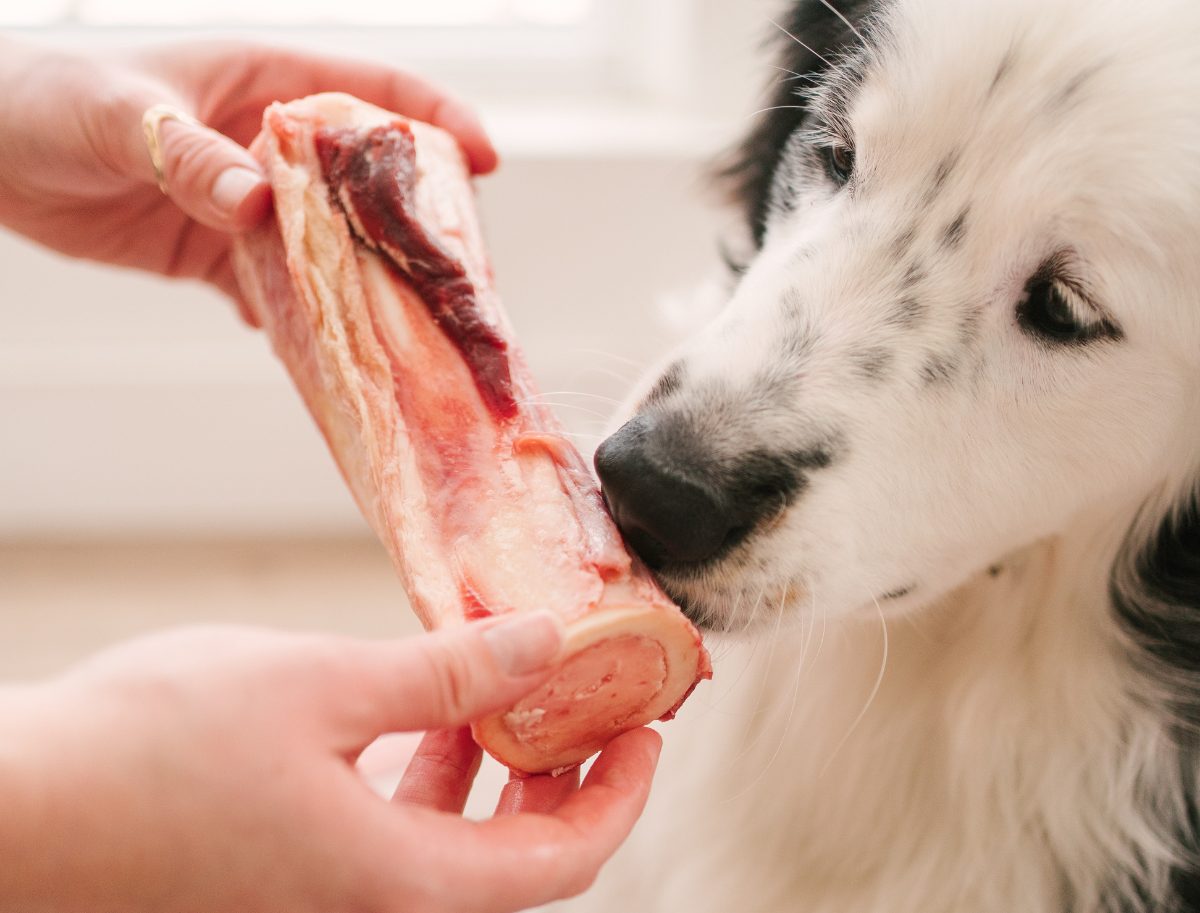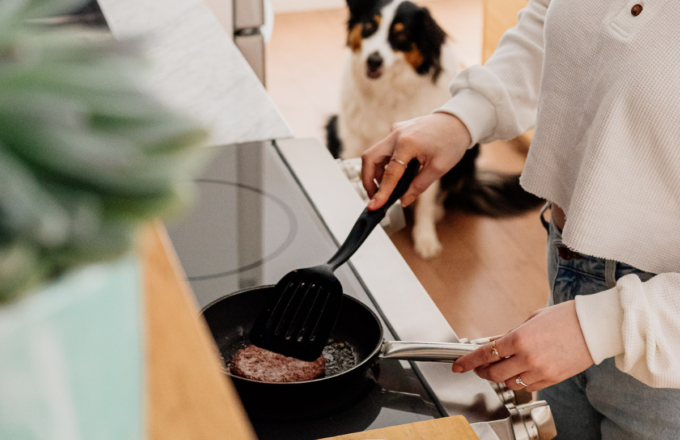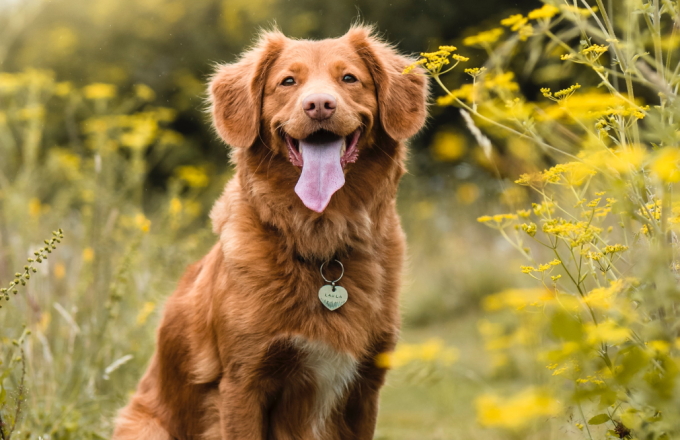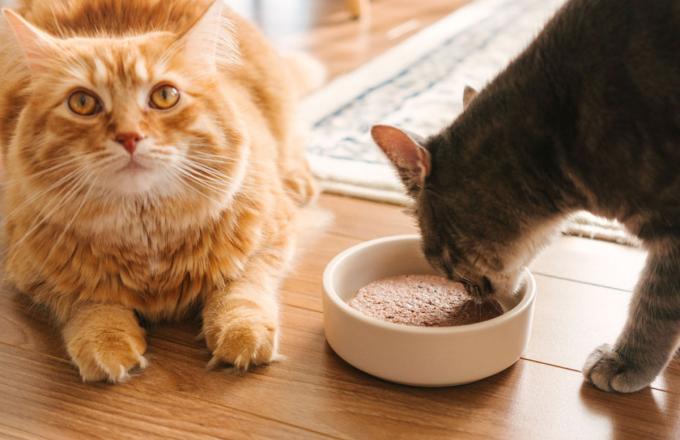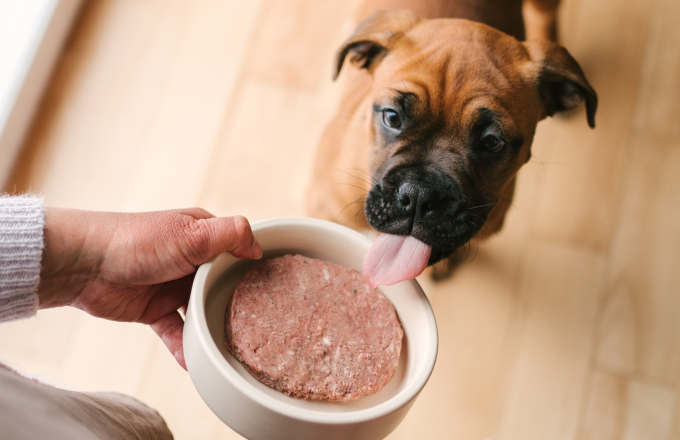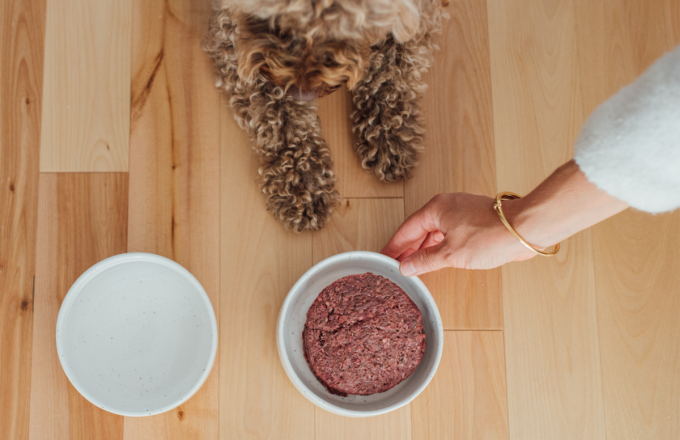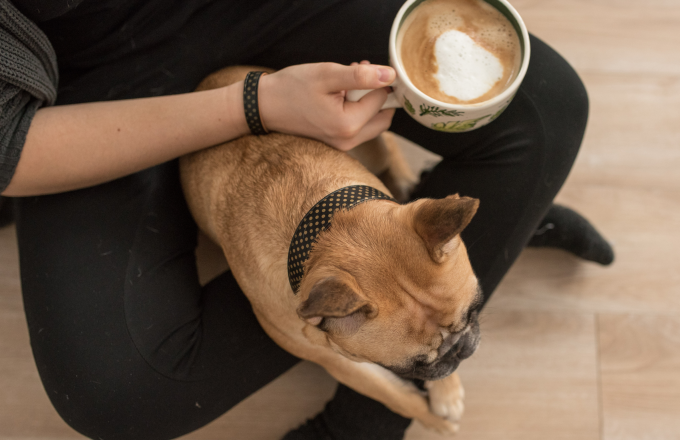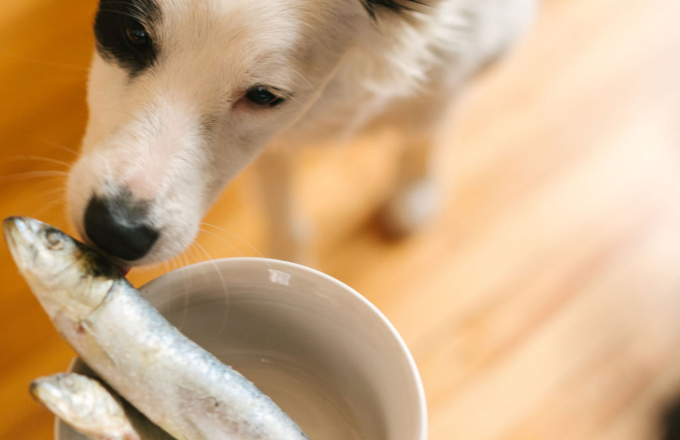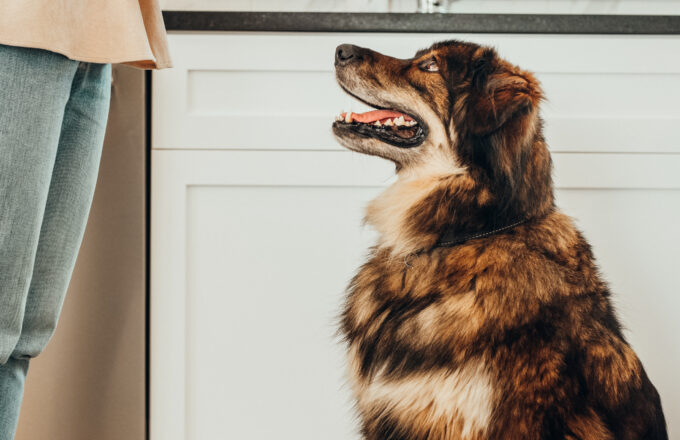Complete guide to recreational bones for dogs
Recreational bones are essential for your dog’s wellbeing. Not only are they great for entertaining them and meeting their chewing needs, they’re also an asset for their oral health. Put it this way: chewing a raw bone is to dogs what brushing and flossing is to humans. Plus, it reduces the risk of gum disease.
Your choice of bone will differ based on your dog’s size, age, and oral health. Our complete guide can help you make the right choice for your companion.
Types of raw bones for dogs
We mean recreational bone when we say raw bones. There are two types of recreational bones: long bones and flat bones.
- Long bones: these are found in the legs and wings of animals. Long bones tend to have hard, smooth surfaces and marrow-filled centres. Their extremities are soft and full of cartilage.
- Flat bones: these are found in the spine, ribs, pelvis, and shoulders. They are softer than long bones and don’t contain as much marrow. Their surface is more convoluted.
Dogs fed kibble should start with smaller, softer bones, such as chicken or duck necks. This way, the body adjusts its acidity levels to break down the bone. In time, they’ll be able to digest any edible bone.
The benefits of raw bones
On top of keeping your pet busy, recreational bones provide a multitude of health benefits.
Discover Our Recreational Bones
Muscle strengthening
Each chewing session demands effort from your dog, which strengthens the neck and back muscles as well as the spine. This helps their muscles grow stronger.
Improved dental health
Chewing is essential for your dog’s dental health. Of course, there are toothbrushes and toothpastes, but the recreational bone remains a great ally for maintaining dental health.
Chewing raw bones and connective tissues helps prevent plaque buildup and keeps gums healthy. Whether or not your dog eats raw, raw bones are a great addition to their dental care routine.
Bone density maintenance
In order to maintain a good bone structure, your dog needs calcium. Recreational bones contain minerals that prevent blood clotting and muscle contraction, and they have a positive impact on vision and heart function. Warning: too much calcium can be harmful—each dog has their own calcium needs. It’s important to vary the bones you give your dog and to restrict these offerings to three per week.
Healthier coat
Raw bones can contribute to a healthy skin and coat, since marrow and cartilage are good sources of collagen. Those with connective tissues are especially beneficial for your dog’s skin health.
Choosing a bone for your dog
You’ll find several shapes, sizes, and proteins on the market. No matter what you choose, remember this: bone size must exceed the capacity of your pet’s mouth.
Small, medium or big chewer
If your pet is an avid eater and chews bones hungrily, then long, hard femur-like bones won’t satisfy them. The ox patella is an ideal recreational bone for large chewers. Prime rib is also a good choice because it doesn’t bear a load. On the other hand, if your animal is gentle, femurs are ideal.
Puppies
It’s important not to give puppies bones that are too hard since they still have baby teeth. These teeth are fragile and chewing can require force. We recommend introducing bones gradually starting at three months and to supervise your pet during chewing sessions. Our canine support team can recommend the best raw bones for your pup’s needs.
Senior dogs
Some older dogs may have problems with their teeth. Whether it’s because of sensitivity, fragile teeth, or the absence of teeth, they may find it difficult to chew bones. It’s essential to opt for softer bones.
Brachycephalic dog breeds
Dog breeds like pugs, bulldogs, boxers, shih-tzus, and Boston terriers have limited chewing abilities due to their skull structure. Be sure to watch your pet closely and choose a bone that’s easy for them to chew on.
Small breed dogs
Miniature dogs have very small jaws and teeth, which can make it harder to chew bones. Chicken necks, lamb bones, and small beef rib can be great options.
Large breed dogs
In general, large breed dogs are good chewers. Bones from large animals are ideal for them. Medium beef rib, beef knuckle, beef femur, and turkey neck are good options.
The golden rule
While giving your dog a raw bone is a good idea for several reasons, it’s important to do so safely.
Never cook bones, and don’t offer cooked bones to your dog
Bones should always be fed raw. Cooking changes the chemical structure of the bone, making it brittle and sharp when broken. Feeding your pet cooked bones can have serious consequences, including vomiting, diarrhea, or perforation of the digestive tract.
Introduce them slowly
If your pet already has a natural raw diet, adding recreational bones to this diet will prove an easy task. Otherwise, it’s essential to introduce them slowly in order to not interrupt the digestive system.
Choose a designated area
It’s important to designate a space where your dog will chew their bones. Make sure this area is easy to clean to avoid soiling your environment. Use a voice command like “mat” to get your dog to the designated spot and mop the space when they’re done chewing. Wash your hands and your pet’s snout with lukewarm water.
Don’t leave bones lying around
Anything your dog doesn’t eat in one sitting should be refrigerated. Place leftovers in an airtight bag or dish in the fridge. If your dog is done chewing their bone, remove it quickly and throw it away to prevent it from drying out and becoming a health hazard.
Watch your pet
No matter which bone you choose to give your dog, make sure you’re present while they’re enjoying it.
Variety is key! To get the optimal balance of nutrients, vary the bones you feed your dog. This also helps identify which they prefer. Your dog will enjoy the mental stimulation they get from chewing, and they’ll benefit from better dental health.

